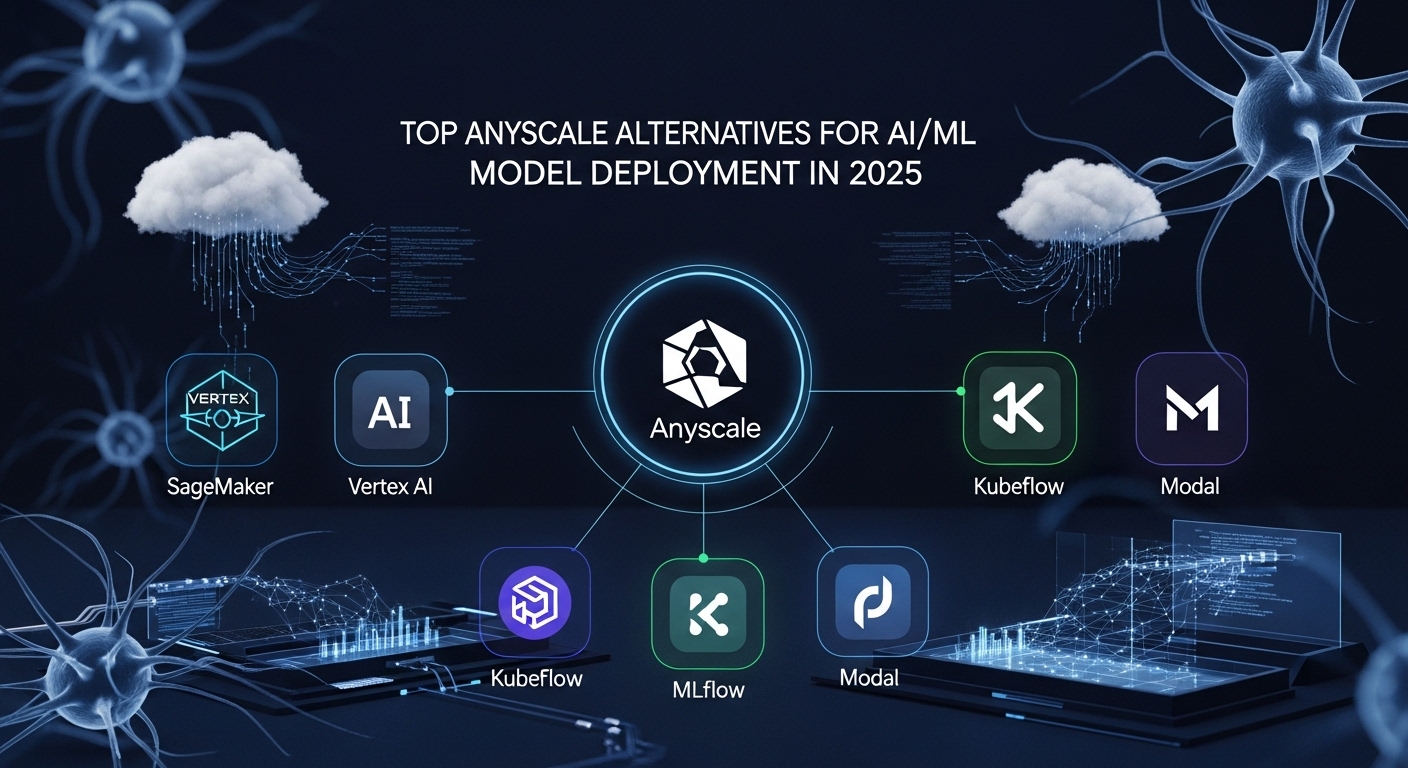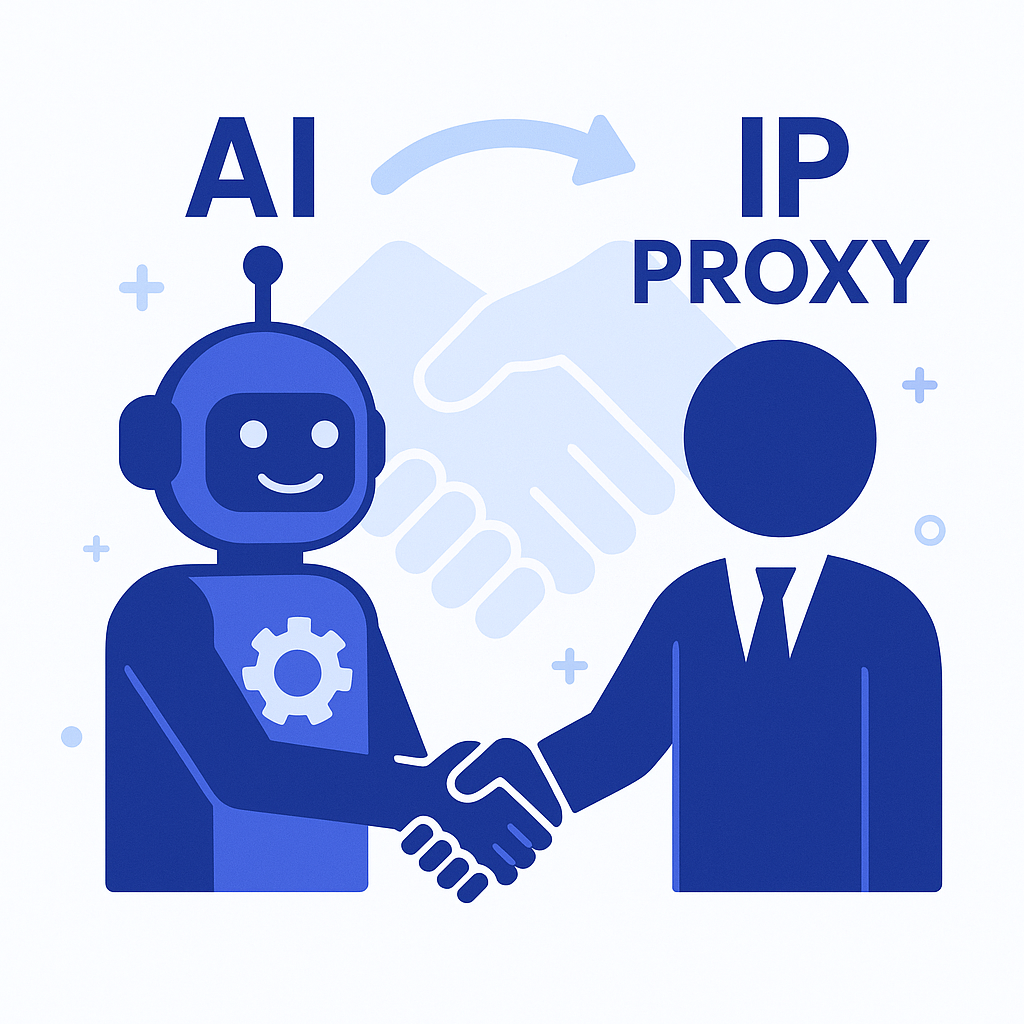Top Anyscale Alternatives for AI/ML Model Deployment in 2025

Strong 8k brings an ultra-HD IPTV experience to your living room and your pocket.
Deploying AI and machine learning models at scale can be complex, resource-intensive, and time-consuming. While Anyscale, powered by Ray, offers a robust framework for distributed AI workloads, many teams are now exploring alternatives that better align with their specific use cases, budgets, or tech stacks.
In this blog, we’ll explore the top Anyscale alternatives for AI/ML model deployment in 2025, comparing their features, benefits, limitations, and use cases.
What is Anyscale?
Anyscale is a platform built on the open-source Ray framework, designed to simplify distributed computing and enable seamless scaling of AI/ML workloads. It allows developers and data scientists to:
- Train and deploy ML models
- Run Python applications at scale
- Use distributed resources without managing infrastructure
However, teams may look for Anyscale alternatives due to factors such as pricing, deployment complexity, UI limitations, or a preference for open-source tools.
Why Consider Anyscale Alternatives?
Here are some common reasons teams seek Anyscale alternatives for AI/ML deployment:
- Cost efficiency for startups and small team
- Simpler interfaces for non-engineers
- On-premise or hybrid deployment options
- Better Kubernetes support
- Custom hardware and GPU utilization
- Integration with existing MLOps pipelines
Let’s dive into the top tools that serve as Anyscale competitors or replacements for scalable ML deployment.
1. SageMaker by AWS
🧠 Overview:
Amazon SageMaker is a fully managed service that helps developers and data scientists build, train, and deploy ML models quickly.
🔍 Key Features:
- One-click training and deployment
- Built-in Jupyter notebooks
- Autopilot for AutoML
- Real-time and batch inference
- Integration with S3, Lambda, and other AWS services
✅ Pros:
- Fully managed infrastructure
- Easy integration with AWS ecosystem
- Good for both beginners and enterprise users
❌ Cons:
- Cost can grow rapidly
- Requires AWS account and IAM setup
💡 Best For:
Teams already invested in the AWS ecosystem and looking for scalability and automation.
2. Vertex AI by Google Cloud
🧠 Overview:
Vertex AI brings together all of Google Cloud’s AI services into a unified platform for model training, tuning, deployment, and monitoring.
🔍 Key Features:
- Custom training with GPUs/TPUs
- AutoML for tabular, image, text, and video data
- MLOps tools: model registry, pipelines, CI/CD
- Real-time serving with prediction endpoints
✅ Pros:
- Fully integrated with BigQuery, GCS, and GKE
- High-performance with TPU support
- Managed JupyterLab environments
❌ Cons:
- Steeper learning curve
- Limited third-party integrations outside GCP
💡 Best For:
Data teams using BigQuery, Looker, or GCP-native workflows.
3. Azure Machine Learning
🧠 Overview:
Azure ML is Microsoft’s cloud-native ML platform with support for model training, AutoML, deployment, and MLOps.
🔍 Key Features:
- Automated ML and drag-and-drop designer
- Integrated notebooks and pipelines
- Kubernetes-based deployment
- MLFlow integration
✅ Pros:
- Great for enterprises using Microsoft tools
- Built-in compliance and security features
- Model versioning and monitoring
❌ Cons:
- Complex pricing tiers
- Limited GPU availability in some regions
💡 Best For:
Large enterprises and .NET-heavy teams looking for end-to-end AI infrastructure.
4. Kubeflow
🧠 Overview:
Kubeflow is an open-source MLOps platform built on Kubernetes, ideal for teams that want full control over the infrastructure.
🔍 Key Features:
- Notebooks, pipelines, training, serving
- Integration with KFServing and TensorFlow Serving
- Runs on any Kubernetes cluster (cloud or on-prem)
✅ Pros:
- Fully open-source and customizable
- Excellent for DevOps/MLOps integration
- Cloud-agnostic
❌ Cons:
- Steeper learning curve
- Complex setup for beginners
💡 Best For:
Advanced ML teams with Kubernetes knowledge and a need for customizable pipelines.
5. MLflow
🧠 Overview:
MLflow is an open-source platform by Databricks for managing the ML lifecycle, including experimentation, reproducibility, and deployment.
🔍 Key Features:
- Model tracking and versioning
- Model registry
- Local, cloud, or container-based deployment
- REST API serving
✅ Pros:
- Lightweight and flexible
- Integrates with most ML frameworks (TensorFlow, PyTorch, XGBoost, etc.)
- Works with any cloud or on-prem
❌ Cons:
- No built-in infrastructure scaling (needs Docker/K8s/cloud setup)
- Not an all-in-one platform like Anyscale
💡 Best For:
Teams already using Databricks or building custom MLOps stacks.
6. Replicate
🧠 Overview:
Replicate is a new-age ML deployment tool designed for fast, shareable model inference via API endpoints.
🔍 Key Features:
- Simple API for model hosting
- Popular with open-source models (e.g., Stable Diffusion)
- Web-based deployment interface
✅ Pros:
- Extremely fast to deploy models
- Great community and pre-trained models
- Minimal setup required
❌ Cons:
- Limited control over infrastructure
- No training or pipeline support
💡 Best For:
Developers looking to quickly share or demo ML models via API.
7. Modal Labs
🧠 Overview:
Modal is a serverless platform for deploying Python code and ML models with infrastructure managed automatically.
🔍 Key Features:
- GPU-based execution without provisioning
- Serverless jobs and functions
- Deploy APIs and inference pipelines with minimal code
✅ Pros:
- Fast and scalable
- No DevOps knowledge needed
- Pay-per-use pricing model
❌ Cons:
- Still maturing
- Less customizable for complex ML workloads
How to Choose the Right Anyscale Alternative
When evaluating an Anyscale alternative, consider:
- Your team’s cloud provider (AWS, GCP, Azure, or hybrid)
- Level of MLOps maturity
- Need for AutoML, low-code tools, or custom pipelines
- Budget and cost control
- On-prem vs cloud deployment requirements
- Support for real-time vs batch inference
Final Thoughts
While Anyscale is powerful and built for distributed AI workloads, it's not a one-size-fits-all solution. Whether you're a startup, a research lab, or an enterprise, the right Anyscale alternative depends on your infrastructure preferences, data privacy needs, and team expertise.
From fully managed solutions like SageMaker and Vertex AI to open-source MLOps stacks like Kubeflow and MLflow, the AI/ML landscape in 2025 offers a variety of tools to train, deploy, and scale models efficiently.
Note: IndiBlogHub features both user-submitted and editorial content. We do not verify third-party contributions. Read our Disclaimer and Privacy Policyfor details.







